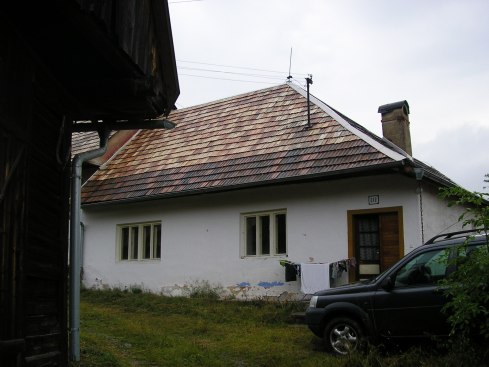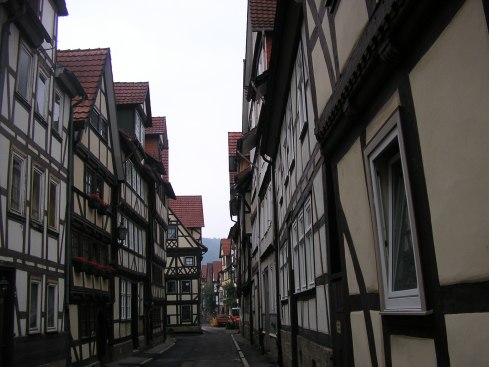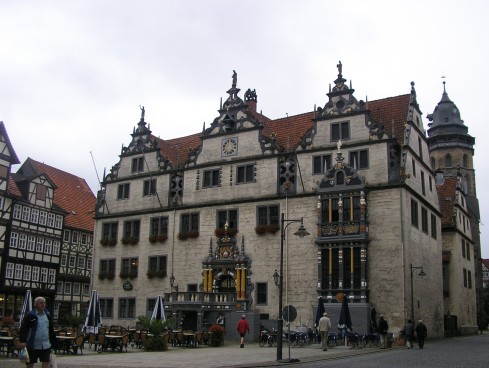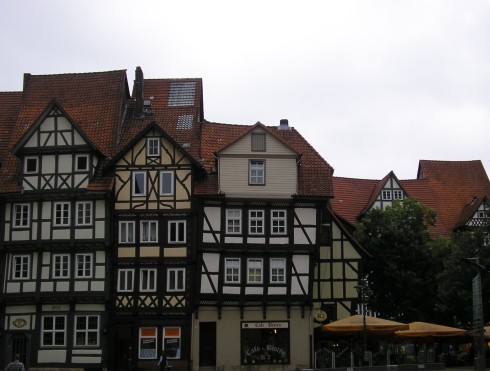Over the summer of 2007, I spent five weeks undertaking a grand tour of Europe in a trusty Land Rover (now resident in Poland, apparently). I sailed from East Anglia to the Netherlands then across Germany to the Czech Republic and down to Slovakia. From there, I drove through Austria and southern Germany to north-western France. Then it was back along the coast of northern Europe, through Belgium and the Netherlands before sailing back to England. Phew… I immersed myself in the experience rather than cataloguing it through words and photographs and so I do not have a record of all of the places that I visited.

The trusty Land Rover sneaks into the picture up a Slovakian mountainside
There was, though, one particularly well-preserved town in eastern Germany of which I did take a few photographs. At the time, I was working on my blockbuster of a novel with a WW2 setting. One sub-plot is concerned with the destruction of the German cities and the town I’d chanced upon came to serve as an imaginative template for how such cities might have looked, before the bombing. The only thing is, I can’t remember where the town is or what it’s called…

Eine alte Straße
So this post features more photographs and less text than usual in the hope that somebody, somewhere out there in the world will recognise it and tell me where it is. Suggestions on a virtual postcard, please… German Mike, I’m depending upon you!

Der Marktplatz

Und auch der Markt
I shall leave you with a short extract from my WW2 novel. I attempted to deal with the destruction rather obliquely. My reasons were twofold. Firstly, I felt that there were already plenty of words out there providing straightforward descriptions. In the course of my research, I read W G Sebald’s remarkable work, On the Natural History of Destruction. What could I add to that? And secondly, there’s a tendency for words to fail when trying to comprehend such events, and so you find yourself grasping for new ways to describe them (and failing, in all likelihood).
Razing All Features
Viewing the grid-plan of the city from above, it resembled a Monopoly board which some truculent child had kicked over in a fit of pique, having sensed that the game was turning against him. The child had scattered all the houses and hotels, up-ended the cars and killed the dogs. Firemen were dredging frantically through the rubble for survivors, turning up just the odd boot or top hat. The order of the streets seemed to have been re-arranged entirely: Königswall stood where Viktoriastraße should have been, Friedhof in the space that Hansastraße had previously occupied. The city’s infrastructure has been systematically taken apart. The electricity and the water works had been knocked out, the railway stations turned upside-down. Even the city jail had been breached. Heaven alone knew where its inmates were now.
Joyeuses Pâques!
All text and images © PSR 2013

